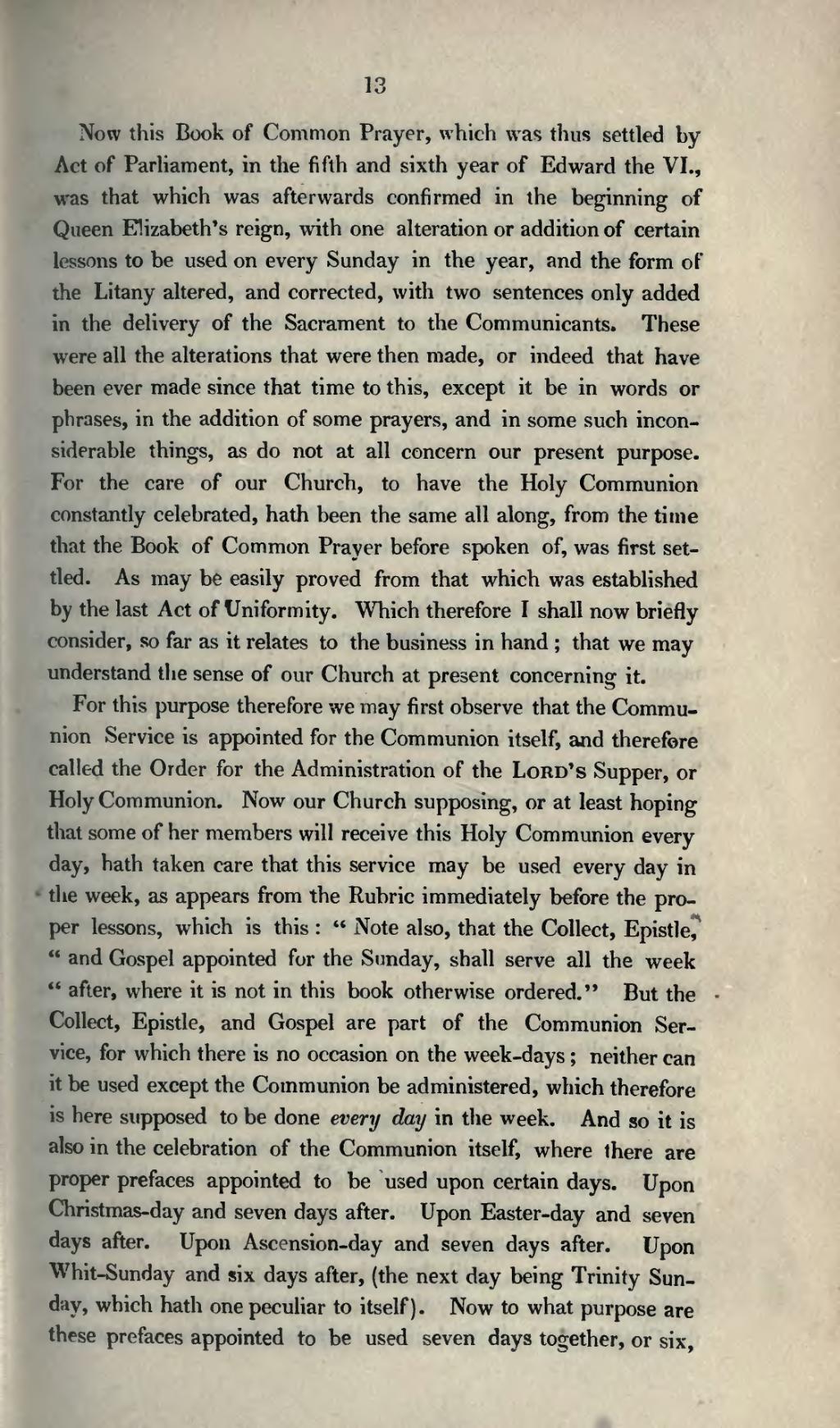13
Now this Book of Common Prayer, which was thus settled by Act of Parliament, in the fifth and sixth year of Edward the VI., was that which was afterwards confirmed in the beginning of Queen Elizabeth's reign, with one alteration or addition of certain lessons to be used on every Sunday in the year, and the form of the Litany altered, and corrected, with two sentences only added in the delivery of the Sacrament to the Communicants. These were all the alterations that were then made, or indeed that have been ever made since that time to this, except it be in words or phrases, in the addition of some prayers, and in some such inconsiderable things, as do not at all concern our present purpose. For the care of our Church, to have the Holy Communion constantly celebrated, hath been the same all along, from the time that the Book of Common Prayer before spoken of, was first settled. As may be easily proved from that which was established by the last Act of Uniformity. Which therefore I shall now briefly consider, so far as it relates to the business in hand; that we may understand the sense of our Church at present concerning it.
For this purpose therefore we may first observe that the Communion Service is appointed for the Communion itself, and therefore called the Order for the Administration of the Lord's Supper, or Holy Communion. Now our Church supposing, or at least hoping that some of her members will receive this Holy Communion every day, hath taken care that this service may be used every day in the week, as appears from the Rubric immediately before the proper lessons, which is this: "Note also, that the Collect, Epistle, and Gospel appointed for the Sunday, shall serve all the week after, where it is not in this book otherwise ordered." But the Collect, Epistle, and Gospel are part of the Communion Service, for which there is no occasion on the week-days; neither can it be used except the Communion be administered, which therefore is here supposed to be done every day in the week. And so it is also in the celebration of the Communion itself, where there are proper prefaces appointed to be used upon certain days. Upon Christmas-day and seven days after. Upon Easter-day and seven days after. Upon Ascension-day and seven days after. Upon Whit-Sunday and six days after, (the next day being Trinity Sunday, which hath one peculiar to itself). Now to what purpose are these prefaces appointed to be used seven days together, or six,
